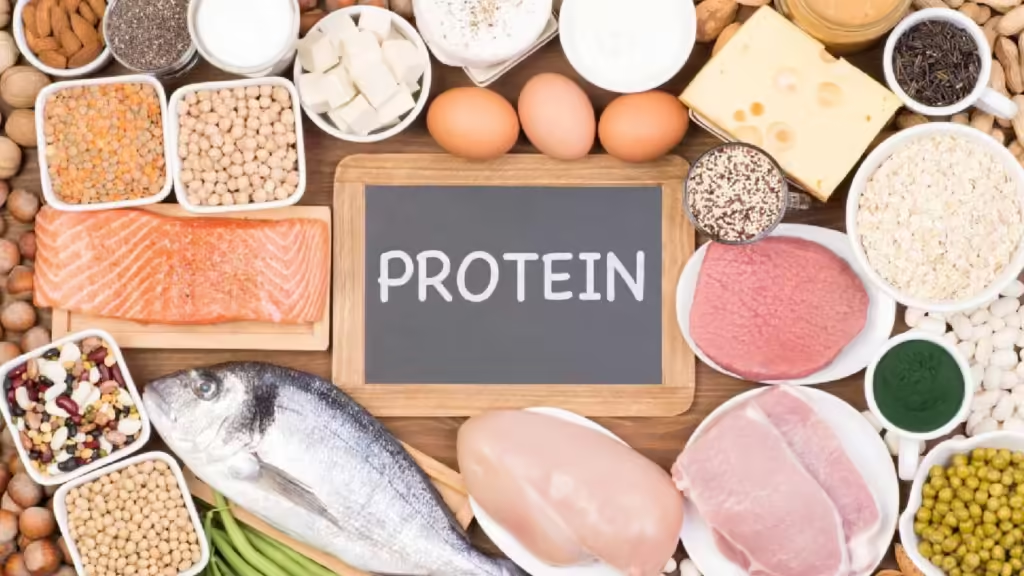Are you looking to build muscle and achieve your fitness goals? Understanding the role of protein in muscle building is crucial for anyone serious about gaining strength and enhancing their physique. Protein is the building block of muscles, playing a vital role in repair, growth, and recovery. In this comprehensive guide, we’ll explore everything you need to know about protein’s impact on muscle building, from the best sources and types to optimal intake and timing. Whether you’re a seasoned athlete or just starting your fitness journey, this article will provide valuable insights and practical tips to help you harness the power of protein for muscle growth.
The Role of Protein in Muscle Building: A Comprehensive Guide
Understanding Protein and Muscle Growth
What is Protein?
Protein is a macronutrient made up of amino acids, essential for various bodily functions, including muscle repair and growth. It serves as the foundation for muscle tissue, making it indispensable for anyone looking to build muscle.
Protein’s Role in Muscle Building
When you engage in strength training or other muscle-building activities, your muscle fibers experience tiny tears. Protein helps repair these tears, leading to muscle growth. This process is known as muscle protein synthesis, which is crucial for gaining muscle mass and strength.
Protein Metabolism in Muscle Growth
The body metabolizes protein through a series of biochemical processes that break down dietary protein into amino acids. These amino acids are then used to repair and build muscle tissue, contributing to overall muscle growth.
Types of Protein for Muscle Building
Best Protein for Muscle Gain
Different types of protein can support muscle growth, including whey, casein, and plant-based proteins. Each type offers unique benefits, and the best choice depends on your dietary preferences and fitness goals.
High-Protein Foods for Muscle Building
Incorporating high-protein foods into your diet is essential for muscle building. Some of the best sources include lean meats, fish, eggs, dairy products, legumes, nuts, and seeds.
Whey Protein for Muscle Building
Whey protein is a fast-digesting protein derived from milk. It is rich in essential amino acids and has been shown to promote muscle growth and recovery, making it a popular choice among athletes.
Casein Protein Benefits for Muscle Growth
Casein protein, also derived from milk, is a slow-digesting protein that provides a steady release of amino acids. It is particularly beneficial for muscle recovery during periods of fasting, such as overnight.
Plant-Based Protein for Muscle Building
For those following a plant-based diet, there are numerous protein options, including soy, pea, hemp, and rice proteins. These proteins can effectively support muscle growth and offer additional health benefits.
Protein Intake for Muscle Building
How Much Protein for Muscle Growth
The amount of protein you need depends on factors like your body weight, activity level, and fitness goals. Generally, consuming 0.7 to 1.0 grams of protein per pound of body weight is recommended for muscle growth.
Protein Timing for Muscle Gain
Timing your protein intake can enhance muscle growth. Consuming protein before and after workouts ensures that your muscles receive the necessary nutrients for repair and growth.
Post-Workout Protein for Muscle Recovery
Post-workout protein intake is crucial for muscle recovery. Consuming protein within 30 minutes of exercise helps kickstart muscle protein synthesis and accelerates recovery.
Protein Supplements for Muscle Growth
Protein Supplements Overview
Protein supplements offer a convenient way to increase your protein intake. They come in various forms, including powders, bars, and ready-to-drink shakes, catering to different preferences and needs.
Protein Powder for Muscle Gain
Protein powders are a popular supplement choice, providing a concentrated source of protein. They can be easily mixed with water or milk and are ideal for post-workout recovery.
Protein Shakes for Muscle Growth
Protein shakes are a quick and convenient option for boosting your protein intake. They can be customized with different ingredients to suit your taste and nutritional needs.
Amino Acids and Muscle Building
Role of Amino Acids
Amino acids are the building blocks of protein, playing a vital role in muscle building. There are essential amino acids that the body cannot produce and must be obtained through diet or supplements.
Essential Amino Acids for Muscle Growth
Essential amino acids, such as leucine, isoleucine, and valine, are critical for muscle protein synthesis. Ensuring an adequate intake of these amino acids supports muscle growth and recovery.
Practical Tips and Strategies
Best Sources of Protein for Muscle Building
Incorporate a variety of protein sources into your diet to ensure you get all essential amino acids. Mix animal and plant-based proteins for a balanced and diverse nutrient intake.
Creating a High-Protein Meal Plan
Designing a meal plan with high-protein foods can help you stay on track with your muscle-building goals. Include protein-rich meals and snacks throughout the day to meet your nutritional needs.
Conclusion
Understanding the role of protein in muscle building is key to achieving your fitness goals. By incorporating the right types of protein, optimizing your intake and timing, and using supplements strategically, you can maximize muscle growth and recovery. Start implementing these tips today and watch your muscles grow stronger and more defined. If you have any questions or tips of your own, feel free to share them in the comments!
Check out the Website for getting Trending Clothes, Home Products and Electronic Gadgets in Brilliant Quality at Reasonable Price — www.coolurbanstore.com
You Can Also Checkout the other website, where i upload the News, History and Biography Blogs. Website


